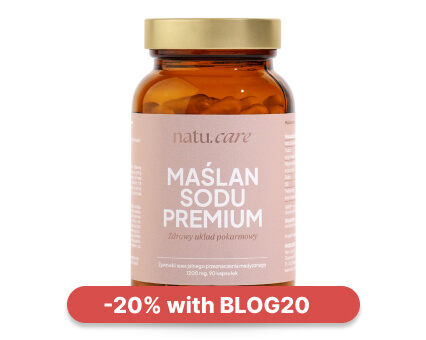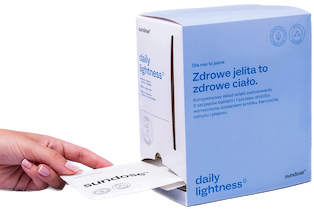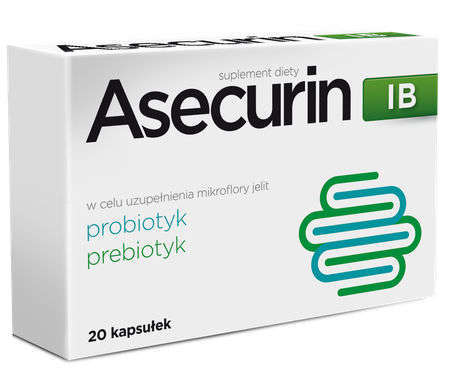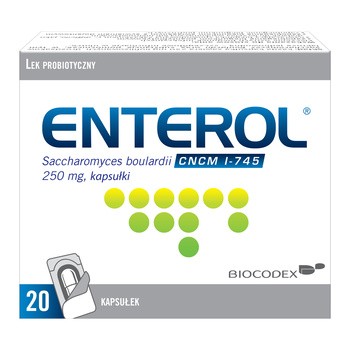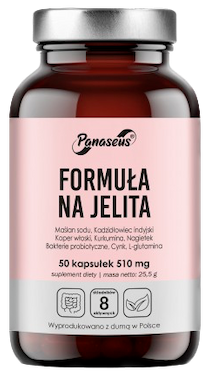A good probiotic for irritable bowel: which strains will help with IBS
Find out how to choose a good probiotic for irritable bowel and what to look out for when buying one.


Learn more about our editorial process
.

Learn more about our editorial process
.

Learn more about our editorial process
.

Learn more about our editorial process
.
Why you can trust us
Articles on Natu.Care are written based on scientific research, data from government websites and other reliable sources. The texts are written in cooperation with doctors, nutritionists and other health and beauty experts. Articles are reviewed before publication and during significant updates.
.Learn more about our editorial process
.Information about advertisements
Content on Natu.Care may contain links to products from the sale of which we may receive a commission. When creating content, we adhere to high editorial standards and take care to be objective about the products discussed. The presence of affiliate links is not dictated by our partners, and we select the products we review ourselves completely independently.
.Learn more about our terms and Conditions
.According to research, up to one in five people in our country may suffer from irritable bowel syndrome (IBS). Not surprisingly, new treatments for this ailment are constantly being sought.
One therapy that can provide relief for people with IBS is taking probiotics. However, according to research, the effectiveness of different species and strains of these beneficial bacteria can vary widely. They will also not be suitable for every patient.
With magister of pharmacy Ilona Krzak, we will help you find out whether probiotics can support you in your fight against irritable bowel syndrome and which strains to look out for when choosing a particular preparation.
From this article you will learn:
- What is irritable bowel syndrome.
- What are the effects of irritable bowel syndrome?
- What effect probiotics have on the gut. .
- Will probiotics work for every person with IBS.
- Will probiotics work for every person with IBS?
- What strains are effective according to the research. .
- What to watch out for when choosing a probiotic for IBS. .
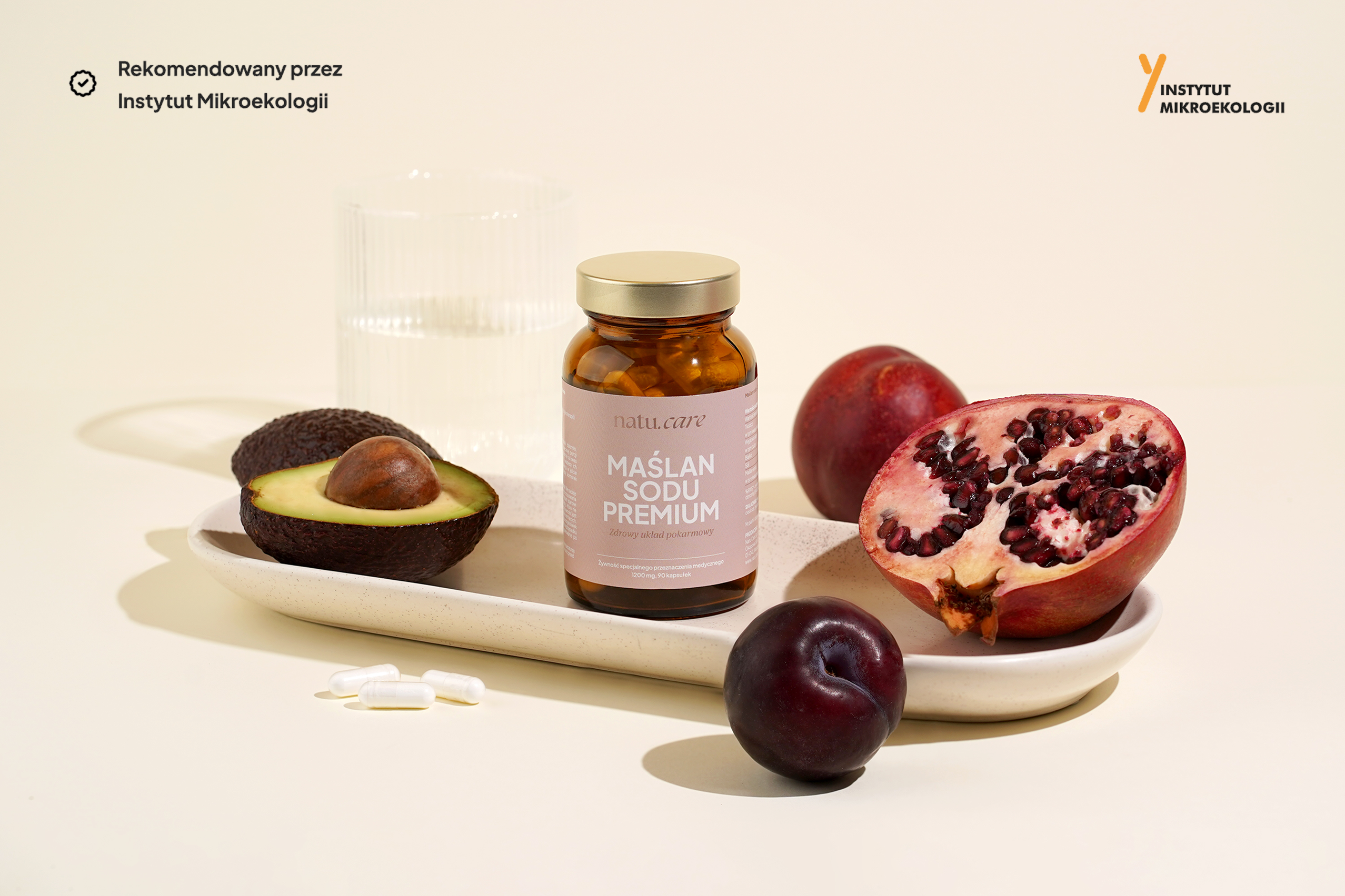
Odkryj korzyści, jakie niesie ze sobą Maślan Sodu Premium od Natu.Care!
Natu.Care Maślan Sodu Premium
Poznaj Maślan Sodu Premium – najwyższej jakości suplement wspierający zdrowie jelit. Maślan sodu pomaga w regeneracji nabłonka jelitowego, poprawia trawienie i wspiera naturalną równowagę mikroflory.
Sprawdź cenę
W końcu się lepiej czuję! Pożegnałam się ze wzdęciami i zaparciami a do tego poprawił się stan mojej cery bo zdrowe jelita to też zdrowa i piękna skóra. Polecam!@Klaudia F.
See also:
.
- What is a probiotic
- What is a prebiotic
- What is a synbiotic
- What is a psychobiotic
- Gut microbiotics
- Gynecological starch
- Pregnancy strobe
What is irritable bowel syndrome?
.
Iritable bowel syndrome - IBS ( irritable bowel syndrome) - is also called irritable bowel or irritable bowel syndrome. Whichever name gets stuck in your head, it is a chronic disease of the gastrointestinal tract, basically a functional disorder of the intestines. IBS is characterised by a lack of visible changes in the intestinal and gastric mucosa, yet still gives symptoms from the gastrointestinal tractand.
Iritable bowel syndrome is most common in highly developed regions. It is estimated that in Europe it can affect between 10% and 20% of the population .
Because of the lack of anatomical changes, the diagnosis of irritable bowel syndrome used to be made on the basis of elimination of other diseases. As a result, patients underwent multiple investigations to rule out other ailments. Nowadays, the diagnostic steps have been systematised, creating the so-called Rome Criteria. Their latest version - IV - dates from 2016and.
This makes diagnosis much quicker and less burdensome for patients. Treatment can also be implemented earlier.
The treatment of IBS is based on a multifactorial approach and includes pharmacotherapy targeting the predominant symptom, behavioural and psychological treatment, dietary changes, education and an honest, trusting patient-doctor relationship..
 .
.
Ilona Krzak Master of Pharmacy
Not just the gut
Research has shown that around 40-60% of IBS sufferers also experience depressive and anxiety disorders, which may be related to gut disorders.
Frequent headaches and migraines have been linked to an increased risk of irritable bowel syndrome. IBS and migraine have some similarities and may alter the composition of the gut microflora and thus may affect the gut-brain axis and inflammation..
 .
.
Ilona Krzak Master of Pharmacy
.
Symptoms of irritable bowel syndrome
.
IBS manifests itselfand:
- abdominal pain, .
- constipation, .
- diarrhoea, .
- changes in stool consistency,
- incontinence
- incontinence,
- diarrhoea,
- diarrhoea
- excessive gas, .
Problems with bowel movements - depending on the form of irritable bowel syndrome - can range from chronic constipation to diarrhoea, or even a combination of these conditionsand. Abdominal pain in IBS is most often associated with bowel movements, but often does not resolve completely afterwardsand.
To be diagnosed with irritable bowel syndrome, it is assumed that the symptoms should be chronic, meaning they should last for more than six months and show ongoing activity - occurring within the last three months. In terms of frequency, the latest criteria state that abdominal pain and bowel problems should occur at least one day a weekand.
Iritable bowel syndrome can be diagnosed after an infection, such as intestinal flu, once the illness has subsided and we continue to have gastrointestinal problems..
 .
.
Ilona Krzak Master of Pharmacy
.
Diagnostic investigations in patients with IBS include:
.
- routine blood tests, .
- fecal examinations, .
- serological tests for coeliac disease, .
- ultrasound examination of the abdominal cavity, .
- breath examination to exclude carbohydrate intolerance (lactose, fructose, etc.) and bacterial overgrowth in the small intestine,.
Colonoscopy is recommended if there are worrisome symptoms or for a colon biopsy, especially in patients with IBS with predominant diarrhoea, adds pharmacist.
IBS versus SIBO syndrome
.
Following this article, you will read about the healing power of probiotics, the bacteria that naturally inhabit your gut. However, before you decide that probiotics are your salvation in IBS, it is essential to consult your doctor. Why?"
Iritable bowel syndrome is a very heterogeneous disease, so it runs slightly differently in everyone. For some, probiotic bacteria can be great allies in the fight against symptoms, for others... they can make the discomfort even worse.
According to research, probiotic bacteria can be a great ally in the fight against symptoms.
According to research, as many as 31% of people with IBS have SIBO ( small intestinal bacterial overgrowth) syndrome, a syndrome of intestinal bacterial overgrowthand. In such a case, taking inappropriate probiotics is like a shot in the knee.
For SIBO, IBS or inflammatory bowel disease, probiotics that secrete bacteriocins are recommended: Lactobacillus rhamnosus GG and Lactobacillus plantarum secrete plantaricin and hydrogen peroxide; Lactobacillus reuteri - reuterin, Lactobacillus brevis - lactobrevican, and Lactobacillus acidophilus bulgaricus - bulgarican..
 .
.
Ilona Krzak Master of Pharmacy
.
A disorder of the intestinal microflora is considered one of the possible causes of irritable bowel syndrome. However, this disorder does not necessarily have to be a deficiency of beneficial bacteria, but also their overgrowth (which is precisely SIBO syndrome)and.
So before you decide to take probiotic therapy, it is a good idea to perform a diagnosis of SIBO syndrome under the guidance of a doctor. A specialist can order you to takeand:
- blood tests, .
- fecal tests, .
- respiratory hydrogen-methane test, .
- gastrointestinal X-ray, .
- microbiological examination of intestinal or duodenal contents, .
Stress can also be a cause of IBS. During stress reactions, the catecholamines adrenaline, noradrenaline are released, which worsen the blood supply to the intestinal mucosa. In addition, hormones are secreted that alter the properties of the intestinal mucus, its pH and quantity. The amount of IgA secreted into the gastrointestinal tract is also altered, which promotes the proliferation of abnormal bacterial flora and the development of unpleasant intestinal symptoms..
 .
.
Ilona Krzak Master of Pharmacy
Melatonin, an important mediator of the brain's intestinal axis, has been shown to have a protective effect against stress-induced changes in the gastrointestinal tract, adds the pharmacist.
Premium Sodium Butyrate
Product description
Premium Sodium Butyrate is a natural support for your digestive system. With a high dose of butyric acid (940 mg), it supports the regeneration of the intestinal mucosa, improving gut health and function, and aids in the absorption of nutrients. By taking care of your intestines, you're taking care of the health of your entire body.
Studies involving people suffering from irritable bowel syndrome confirm that sodium butyrate is ideal for supporting issues related to bacterial flora imbalances (for example, after antibiotic therapy), constipation and diarrhea, inflammation of the intestinal mucosa, or a diet low in fiber.
Premium Sodium Butyrate capsules are made using the innovative DRcaps® technology. This guarantees that the active ingredients in the product are protected from the destructive effects of stomach acids and digestive enzymes. As a result, we can be sure that the beneficial ingredients are released in the small intestine and are fully absorbed by our body.
Premium Sodium Butyrate from Natu Care is 100% tested, and its composition contains only the highest quality raw materials.
Pros and cons
Pros:
- Supports digestive system function
- Helpful for various gastrointestinal conditions, including IBS
- High dose of butyric acid in each capsule
- Eco-friendly, clean, and tested composition
- Free from added sugar, gluten, GMOs, and lactose
- Innovative capsule technology - DRcaps
Cons:
- None
Additional Information
Take 3 capsules daily at any time of the day, preferably with a meal. Swallow the capsules whole with water.
Premium Sodium Butyrate is intended for adults.
The product should be used under medical supervision.
User review
I've been using the product for 2 weeks. My stomach feels lighter, and my digestion has improved. I recommend it.
Sundose° Daily Lightness°
Product description
Sundose° Daily Lightness° is a formula thatós supports the stomach and liver, reduces the frequency of gasóing and bloating, and supports optimal digestion. The formula contains no unnecessary additivesós, and the composition of the active ingredients (e.g. curcumin with piperine) mutually enhances their absorption.
The dietary supplement from Sundose comes in two flavour versions: orange and green.
Pros and cons
Sundose° Daily Lightness° is a formula thatós supports the stomach and liver, reduces the frequency of gasóing and bloating, and supports optimal digestion. The formula contains no unnecessary additivesós, and the composition of the active ingredients (e.g. curcumin with piperine) mutually enhances their absorption.
The dietary supplement from Sundose comes in two flavour versions: orange and green.
Additional information
Sundose° Daily Lightness° is a formula thatós supports the stomach and liver, reduces the frequency of gasóing and bloating, and supports optimal digestion. The formula contains no unnecessary additivesós, and the composition of the active ingredients (e.g. curcumin with piperine) mutually enhances their absorption.
The dietary supplement from Sundose comes in two flavour versions: orange and green.
Sundose° Daily Lightness° is a formula thatós supports the stomach and liver, reduces the frequency of gasóing and bloating, and supports optimal digestion. The formula contains no unnecessary additivesós, and the composition of the active ingredients (e.g. curcumin with piperine) mutually enhances their absorption.
The dietary supplement from Sundose comes in two flavour versions: orange and green.
Asecurin IB
Product description
Asecurin IB is a synbiotic, i.e. a combination of a probiotic and a prebiotic. It contains bacteria and yeast to support the intestines and digestive system, as well as inulin, whichós food for these microorganisms. The addition of a prebiotic supports and accelerates the growth of beneficial bacterial flora in the intestines.
Pros and cons
Asecurin IB is a synbiotic, i.e. a combination of a probiotic and a prebiotic. It contains bacteria and yeast to support the intestines and digestive system, as well as inulin, whichós food for these microorganisms. The addition of a prebiotic supports and accelerates the growth of beneficial bacterial flora in the intestines.
Additional information
Asecurin IB is a synbiotic, i.e. a combination of a probiotic and a prebiotic. It contains bacteria and yeast to support the intestines and digestive system, as well as inulin, whichós food for these microorganisms. The addition of a prebiotic supports and accelerates the growth of beneficial bacterial flora in the intestines.
Biocodex Enterol
Product description
Enterol is an OTC medicine containing a strain of yeastów particularlyóhelpful in the treatment of diarrhoea caused by infections or so-called travel diarrhoea. It is also recommended as a protective treatment of the intestines during antibiotic intake.
.
Pros and cons
Enterol is an OTC medicine containing a strain of yeastów particularlyóhelpful in the treatment of diarrhoea caused by infections or so-called travel diarrhoea. It is also recommended as a protective treatment of the intestines during antibiotic intake.
.
Additional information
Enterol is an OTC medicine containing a strain of yeastów particularlyóhelpful in the treatment of diarrhoea caused by infections or so-called travel diarrhoea. It is also recommended as a protective treatment of the intestines during antibiotic intake.
.
Enterol is an OTC medicine containing a strain of yeastów particularlyóhelpful in the treatment of diarrhoea caused by infections or so-called travel diarrhoea. It is also recommended as a protective treatment of the intestines during antibiotic intake.
.
Product description
Using Panaseus Digestive Formula can help improve intestinal health by supporting the intestinal barrier, reducing inflammation, protecting against damage and restoring healthy intestinal microflora.
Experience a rós difference in gut function with plant extracts, amino acids and probiotic bacteria.
Pros and cons
Using Panaseus Digestive Formula can help improve intestinal health by supporting the intestinal barrier, reducing inflammation, protecting against damage and restoring healthy intestinal microflora.
Experience a rós difference in gut function with plant extracts, amino acids and probiotic bacteria.
Additional information
Using Panaseus Digestive Formula can help improve intestinal health by supporting the intestinal barrier, reducing inflammation, protecting against damage and restoring healthy intestinal microflora.
Experience a rós difference in gut function with plant extracts, amino acids and probiotic bacteria.
How do probiotics affect the gut?
.
Probiotics are beneficial bacteria that improve the health of your digestive system. They work in several key waysand:
- .
- Produce SCFAs - probiotics help produce short-chain fatty acids (SCFAs), such as sodium butyrate. This is important because sodium butyrate nourishes the cells lining the gut and keeps them healthy. This allows your intestines to better absorb nutrients from food. .
- Strengthen the intestinal barrier - Probiotic bacteria help strengthen the intestinal barrier, which is important for protecting the body from harmful bacteria and toxins. This barrier acts as a shield, blocking the path of harmful substances that could enter your body. .
- Promote the immune system - probiotics are also helpful for the immune system, taking part in the fight against pathogens. This makes the body better prepared for various types of infections.
- Regulate intestinal microflora - beneficial bacteria help to maintain the balance between good and bad microorganisms in the digestive system. This improves overall intestinal health and increases digestive comfort.
Probiotics in irritable bowel syndrome
.
A number of studies suggest that taking probiotics can improve the health of people suffering from irritable bowel syndrome. However, one can also find a sizable group of those that do not confirm the therapeutic effects of probiotic bacteriaand. Why such discrepancies?"
It is difficult to talk about the effectiveness of probiotics overall in the context of a particular ailment. The properties of individual bacteria vary within species and even within individual strains. Studies tend to focus on administering a particular strain or mixture - which will not always work as expectedand.
Another problem in analysing studies on the effectiveness of probiotics for irritable bowel syndrome is the discrepancies in sources and daily portions. Some research papers rely on the intake of probiotic foods (with which it is more difficult to clarify the dose of probiotics taken), while others assume supplementationand.
The following is an example.
Despite these limitations, most reviews of scientific studies and meta-analyses confirm that the use of specific strains of probiotic bacteria in IBS patients can :
- reduce abdominal pain, .
- regulate the frequency and comfort of bowel movements, .
- Alleviate flatulence, .
Sounds great, but let me stress again - it all depends on the species and strain. So, what to look for in probiotic preparations for IBS?
.
Good probiotics for irritable bowel - helpful strains
.
A review of a 2022 scientific study involving 5531 IBS patients found the most effective species of probiotic bacteria to be B. coagulans. The strains that were used in the studies included in the review wereand:
- B. coagulans LBSC, .
- B. coagulans MTCC5856, .
- B. coagulans Unique IS2. .
B. coagulans have shown significant efficacy in the treatment of IBS patients, and the incorporation of B. coagulans into a probiotic combination or genetic engineering to enhance its biological functions may be a future target for research in the treatment of IBS patients.
 .
.
Ilona Krzak Master of Pharmacy
.
Another probiotic species that has shown efficacy in improving the lives of people with irritable bowel syndrome is Lactobacillus plantarum. Strains that may show beneficial properties areand:
- L. plantarum 299v(DSM9843), .
- L. plantarum MF1298. .
In addition to the aforementioned probiotic strains, research also mentions the following, among others, in terms of their effectiveness in managing the symptoms of irritable bowel syndrome:
- S. boulardii CNCM I-745, .
- S. cerevisiae CNCM I-3856, .
- mixture of Lactobacillus delbruekii and Lactobacillus fermentum, .
- L. acidophilus SDC 2012, 2013, .
- B. bifidum MIMBb75, .
- L. caseirhamnosus (LCR 35), .
- B. lactis CNCMI-2494, .
Studies have shown that L. plantarum show the best efficacy, while patients receiving L.acidophilus had the lowest incidence of side effects.
 .
.
Ilona Krzak Master of Pharmacy
.
What is in question, however, is whether it is better to choose multi-strain blends or probiotics containing a single strain of bacteria - in scientific studies the conclusions on this subject are contradictoryand.
In a 2004 research paper, a mixture of strains Lactobacillus Plantarum LP01 and Bifidocterium Breve BR0 was administered to half of the participants in IBS sufferers. The control group received a placebo. Significant improvements were noted among those taking the probioticand:
.
Reduction of pain by 38% after 14 days and by 52% after 28 days
|
Symptoms . |
Group taking the probiotic . |
Group taking placebo |
||
| . |
Abdominal pain |
Reduction of pain by 38% after 14 days and by 52% after 28 days |
Reduction of pain by 18% after 14 days and by 11% after 28 days |
Reduction of pain by 18% after 14 days and by 11% after 28 days |
|
Symptoms of inflammatory bowel disease (bloating, constipation, diarrhoea) |
||||
| . |
Reduction in severity by 49.6% after 14 days and by 44.4% after 28 days |
Reduction in severity by 9.9% after 14 days and by 8.5% after 28 days |
Decrease in severity by 9.9% after 14 days and by 8.5% after 28 days |
Best products for irritable bowel syndrome (IBS):
- Natu.Care Sodium Butyrate Premium
- SUNDOSE Daily Lightness°, for the gut .
- PANASEUS Formula for the gut .
- DR. JACOB'S Iodine + Selenium probio .
- Sanprobi IBS .
- Asecurin IB .
Other preparations that can support your gut:
See also:
.
Synbiotics and FODMAP and IBS
.
FODMAP foods are foods that contain certain types of carbohydrates (including fibre). The term FODMAP is an acronym for Fermentable Oligosaccharides, Disaccharides, Monosaccharides, and Polyols. These are substances that can be difficult for some people to digest, causing symptoms such as bloating, abdominal pain or irregular bowel movementsand.
Examples of foods with high FODMAP levels include:
.
- some fruits such as apples, pears and peaches, .
- vegetables - garlic, onions or broccoli, .
- products containing lactose, .
- some cereals and legumes, such as wheat or chickpeas, .
- sugars, for example sorbitol or xylitol, .
For people with irritable bowel syndrome, a diet low FODMAP diet is recommended, which can help alleviate symptoms of the conditionand.
Synbiotics, a combination of probiotics and prebiotics, can contain fibre fractions that are difficult to digest and can therefore irritate an irritable bowel. Therefore, when choosing a probiotic preparation for IBS, it is safer to opt for one that contains only probiotic bacteria - without the addition of prebiotics.
Probiotic for IBS - how to take it?
.
When starting probiotic supplementation for irritable bowel syndrome, it is a good idea to start with a low dose. Probiotics can initially increase symptoms of gas and bloating. So start with a low dose and gradually increase it. This will allow the body to get used to the new guests in the gut.
Probiotics are best taken in accordance with the manufacturer's instructions - you will find these on the packaging or in the leaflet that comes with the specific preparation. If the method of intake is not specifically stated, you may want to consider taking probiotics with food. This method is considered the least invasive to the gut.
See also:
.
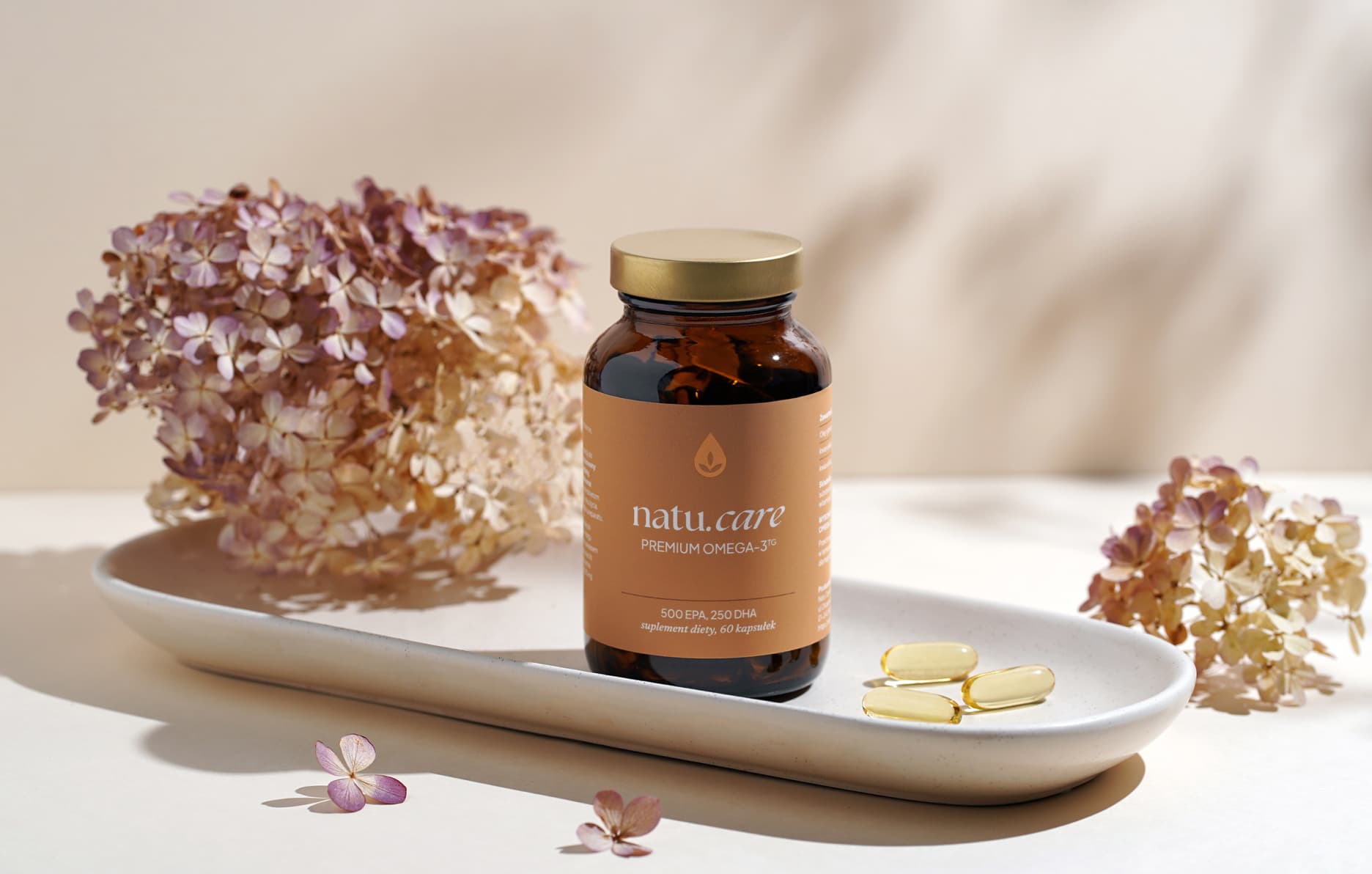
Sprawdź, za co pokochały go tysiące klientek Natu.Care Premium Omega-3ᵀᴳ -15% z kodem BLOG15
Natu.Care Omega-3ᵀᴳ Premium
Natu.Care Omega-3ᵀᴳ Premium dla zdrowia serca, mózgu i odporności. Najlepsza przyswajalność. Optymalna dawka 750 mg. Przebadana przez niezależne laboratorium.
Zobacz więcej
Produkt ma super skład, transparentną etykietę i co dla mnie jest ważne – małe kapsułki do połknięcia. Nie ma też nieprzyjemnego efektu odbijania rybą, który miałam spożywając inne produkty. Widzę znaczną poprawę odporności. Polecam!@Kasia P.
Summary
.
- Iritable bowel syndrome (IBS) is a condition manifested by chronic abdominal pain and problems with bowel movements.
- An abnormality of the intestinal microflora is considered to be one of the causes of IBS.
- Isolation of the intestinal microflora is one of the causes of IBS.
- Probiotics can help regulate the gut microbiota and also help alleviate the symptoms of irritable bowel syndrome.
- The properties of probiotics depend on their species and strain, so not all will be helpful for this condition. .
- The species that show the greatest benefit for IBS patients are B. coagulans and L. plantarum. .
- If you have irritable bowel syndrome, when choosing a probiotic bacteria product, opt for one without added prebiotics.
FAQ
.Which probiotic for irritable bowel syndrome?
.Choose probiotic containing strains such as Bifidobacterium coagulans or Lactobacillus plantarum. These species have shown efficacy in relieving the symptoms of irritable bowel syndrome in scientific studies. You can find them, for example, in the Sanprobi IBS formula.
Take probiotics according to the instructions on the packaging. Consult your doctor on a regular basis to adjust the dose or change the probiotic if necessary.
Provide the following information.
What is best for irritable bowel syndrome?
.Apply diet a low FODMAP diet. FODMAPs are a group of fermentable carbohydrates that can trigger symptoms of irritable bowel syndrome (IBS). Avoid foods rich in FODMAPs, such as onions, garlic, broccoli and apples.
FODMAPs are also found in synbiotics, as an additive prebiotics. These preparations are also worth avoiding.
Exercise regularly. Physical activity helps regulate bowel movements, which can relieve IBS symptoms. Use relaxation techniques such as meditation or yoga. Stress can exacerbate the symptoms of this condition, and relaxation techniques help to reduce it.
Consult a nutritionist. A specialist will help you tailor diet to your lifestyle and preferences, making compliance easier. Consult your doctor regularly. Monitoring symptoms and adjusting treatment is key to managing irritable bowel syndrome.
How long can you take a probiotic for your gut?
.Probiotics for the gut should be taken depending on the needs of the body and the doctor's recommendations. The most common period is at least 4-8 weeks. For specific health problems, such as irritable bowel syndrome, treatment may take longer, but this should always be consulted with your doctor.
Take probiotics according to the instructions on the pack or your doctor's recommendations.
What relieves inflammatory bowel disease?
.Stay on an easily digestible diet and avoid fatty, fried foods and sweets, which can exacerbate inflammation. Drink plenty of water, which helps to remove toxins from the body. Also include probiotics in your diet to support a healthy gut flora.
Additionally, you can use relaxation techniques such as meditation or yoga. Stress can worsen inflammation, so reducing it is important. Consult with your doctor on all dietary and lifestyle changes to make sure they are safe and effective for your condition.
Consult with your doctor.
Where does irritable bowel pain hurt?
.Irritable bowel pain (with irritable bowel syndrome, IBS) can occur in a variety of locations, but is most commonly located in the lower abdomen - particularly either side of the belly button. This pain can feel like a cramp, a dull ache, a burning pain or even a sharp pain. In the case of IBS, it is often associated with bowel movements and bowel movements.
How to find out if you have irritable bowel disease?
.To find out if you have irritable bowel, look out for symptoms such as abdominal pain, bloating, constipation or diarrhoea that last longer than six months. Keep a daily record of everything you eat and drink and how you feel afterwards. This will help identify if there are any dietary patterns associated with your symptoms.
Consult your doctor. Describe your symptoms and medical history to him or her in detail. Carry out any diagnostic tests that the specialist recommends. These may include blood tests, tests for food intolerances or a colonoscopy.
These steps are important because irritable bowel can have similar symptoms to other more serious diseases, such as inflammatory bowel disease, malabsorption syndrome or cancer. Therefore, an accurate diagnosis is crucial.
What over-the-counter medicines for irritable bowel syndrome?
.Iritable bowel syndrome (IBS) can be alleviated with a variety of over-the-counter medications. Choose painkillers such as paracetamol. Avoid non-steroidal anti-inflammatory drugs (e.g. ibuprofen), which can make IBS symptoms worse. Use anti-diarrhoeals, such as loperamide, for quick relief of diarrhoea. Gentle laxatives can help with constipation. Flatulence remedies, such as simethicone, can provide relief from discomfort.
Additionally probiotics can improve the balance of gut bacteria, which is beneficial in IBS. Always consult your doctor or pharmacist about dosage and interactions with other medications.
.
Resources
.See all
.Dale, H. F., Rasmussen, S. H., Asiller, Ö. Ö., & Lied, G. A. (2019a). Probiotics in Irritable Bowel Syndrome: An Up-to-Date Systematic Review. Nutrients, 11(9), Article 9. https://doi.org/10.3390/nu11092048
Dale, H. F., Rasmussen, S. H., Asiller, Ö. Ö., & Lied, G. A. (2019b). Probiotics in Irritable Bowel Syndrome: An Up-to-Date Systematic Review. Nutrients, 11(9), 2048. https://doi.org/10.3390/nu11092048
Didari, T., Mozaffari, S., Nikfar, S., & Abdollahi, M. (2015). Effectiveness of probiotics in irritable bowel syndrome: Updated systematic review with meta-analysis. World Journal of Gastroenterology, 21(10), 3072-3084. https://doi.org/10.3748/wjg.v21.i10.3072
Dukowicz, A. C., Lacy, B. E., & Levine, G. M. (2007). Small Intestinal Bacterial Overgrowth. Gastroenterology & Hepatology, 3(2), 112-122. https://www.ncbi.nlm.nih.gov/pmc/articles/PMC3099351/
Fawzy, I. M., ElGindy, E. M., Abdel-Samie, O., & Aly, H. (2021). Probiotic therapy in patients with irritable bowel syndrome: Does it have a real role? The Egyptian Journal of Internal Medicine, 33(1), 20. https://doi.org/10.1186/s43162-021-00051-2
Floch, M. H. (2003). Probiotics, irritable bowel syndrome, and inflammatory bowel disease. Current Treatment Options in Gastroenterology, 6(4), 283-288. https://doi.org/10.1007/s11938-003-0020-y
GIS. (n.d.). Probiotics for Irritable Bowel Syndrome. Gastrointestinal Society. Retrieved November 30, 2023, from https://badgut.org/information-centre/a-z-digestive-topics/probiotics-for-irritable-bowel-syndrome/
Goodoory, V. C., Khasawneh, M., Black, C. J., Quigley, E. M. M., Moayyedi, P., & Ford, A. C. (2023). Efficacy of Probiotics in Irritable Bowel Syndrome: Systematic Review and Meta-analysis. Gastroenterology, 165(5), 1206-1218. https://doi.org/10.1053/j.gastro.2023.07.018
Kumar, L. S., Pugalenthi, L. S., Ahmad, M., Reddy, S., Barkhane, Z., Elmadi, J., Kumar, L. S., Pugalenthi, L. S., Ahmad, M., Reddy, S., Barkhane, Z., & Elmadi, J. (2022). Probiotics in Irritable Bowel Syndrome: A Review of Their Therapeutic Role. Cureus, 14(4). https://doi.org/10.7759/cureus.24240
.Low FODMAP diet in irritable bowel. (n.d.). Patient. Retrieved November 30, 2023, from http://pacjent.gov.pl/diety/low-fodmap-dieta-w-jelicie-nadwrazliwym
Mack, I., Schwille-Kiuntke, J., Mazurak, N., Niesler, B., Zimmermann, K., Mönnikes, H., & Enck, P. (2022). A Nonviable Probiotic in Irritable Bowel Syndrome: A Randomized, Double-Blind, Placebo-Controlled, Multicenter Study. Clinical Gastroenterology and Hepatology, 20(5), 1039-1047.e9. https://doi.org/10.1016/j.cgh.2021.06.028
Mazurak, N., Broelz, E., Storr, M., & Enck, P. (2015). Probiotic Therapy of the Irritable Bowel Syndrome: Why Is the Evidence Still Poor and What Can Be Done About It? Journal of Neurogastroenterology and Motility, 21(4), 471-485. https://doi.org/10.5056/jnm15071
McFarland, L. V., Karakan, T., & Karatas, A. (2021). Strain-specific and outcome-specific efficacy of probiotics for the treatment of irritable bowel syndrome: A systematic review and meta-analysis. eClinicalMedicine, 41. https://doi.org/10.1016/j.eclinm.2021.101154
Moayyedi, P., Ford, A. C., Talley, N. J., Cremonini, F., Foxx-Orenstein, A. E., Brandt, L. J., & Quigley, E. M. M. (2010). The efficacy of probiotics in the treatment of irritable bowel syndrome: A systematic review. Gut, 59(3), 325-332. https://doi.org/10.1136/gut.2008.167270
News, G. & E. (n.d.). The-Role-of-the-Microbiome-And-Probiotics-in-IBS. Retrieved November 30, 2023, from https://www.GastroEndoNews.com/Review-Articles/Article/11-22/Microbiome-Probiotics-IBS-Irritable-Bowel-Syndrome/68618?ses=ogst
Niu, H.-L., & Xiao, J.-Y. (2020). The efficacy and safety of probiotics in patients with irritable bowel syndrome: Evidence based on 35 randomized controlled trials. International Journal of Surgery, 75, 116-127. https://doi.org/10.1016/j.ijsu.2020.01.142
Parkes, G. C., Sanderson, J. D., & Whelan, K. (2010). Treating irritable bowel syndrome with probiotics: The evidence. Proceedings of the Nutrition Society, 69(2), 187-194. https://doi.org/10.1017/S002966511000011X
Rao, S. S. C., & Bhagatwala, J. (2019). Small Intestinal Bacterial Overgrowth: Clinical Features and Therapeutic Management. Clinical and Translational Gastroenterology, 10(10), e00078. https://doi.org/10.14309/ctg.0000000000000078
Saggioro, A. (2004). Probiotics in The Treatment of Irritable Bowel Syndrome. Journal of Clinical Gastroenterology, 38, S104. https://doi.org/10.1097/01.mcg.0000129271.98814.e2
Weaver, K. R., Melkus, G. D., & Henderson, W. A. (2017). Irritable Bowel Syndrome. AJN The American Journal of Nursing, 117(6), 48. https://doi.org/10.1097/01.NAJ.0000520253.57459.01
Zhang, T., Zhang, C., Zhang, J., Sun, F., & Duan, L. (2022). Efficacy of Probiotics for Irritable Bowel Syndrome: A Systematic Review and Network Meta-Analysis. Frontiers in Cellular and Infection Microbiology, 12. https://www.frontiersin.org/articles/10.3389/fcimb.2022.859967
Zhang, Y., Li, L., Guo, C., Mu, D., Feng, B., Zuo, X., & Li, Y. (2016). Effects of probiotic type, dose and treatment duration on irritable bowel syndrome diagnosed by Rome III criteria: A meta-analysis. BMC Gastroenterology, 16(1), 62. https://doi.org/10.1186/s12876-016-0470-z
.
Editorials
Meet the team

Ilona Krzak obtained her Master of Pharmacy degree from the Medical University of Wrocław. She did her internship in a hospital pharmacy and in the pharmaceutical industry. She is currently working in the profession and also runs an educational profile on Instagram: @pani_z_apteki

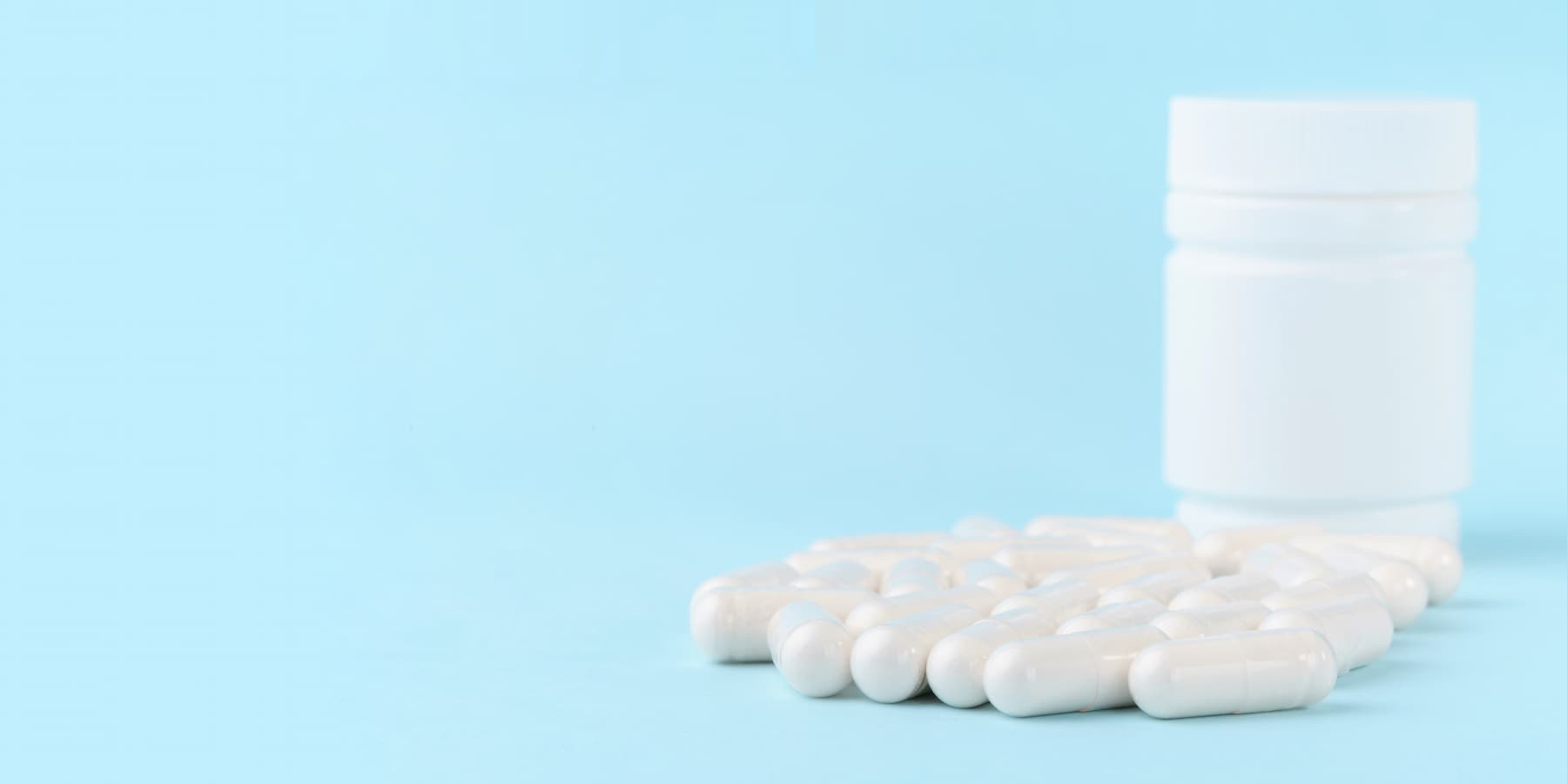
Chondroitin helps the joints and other elements of the body.
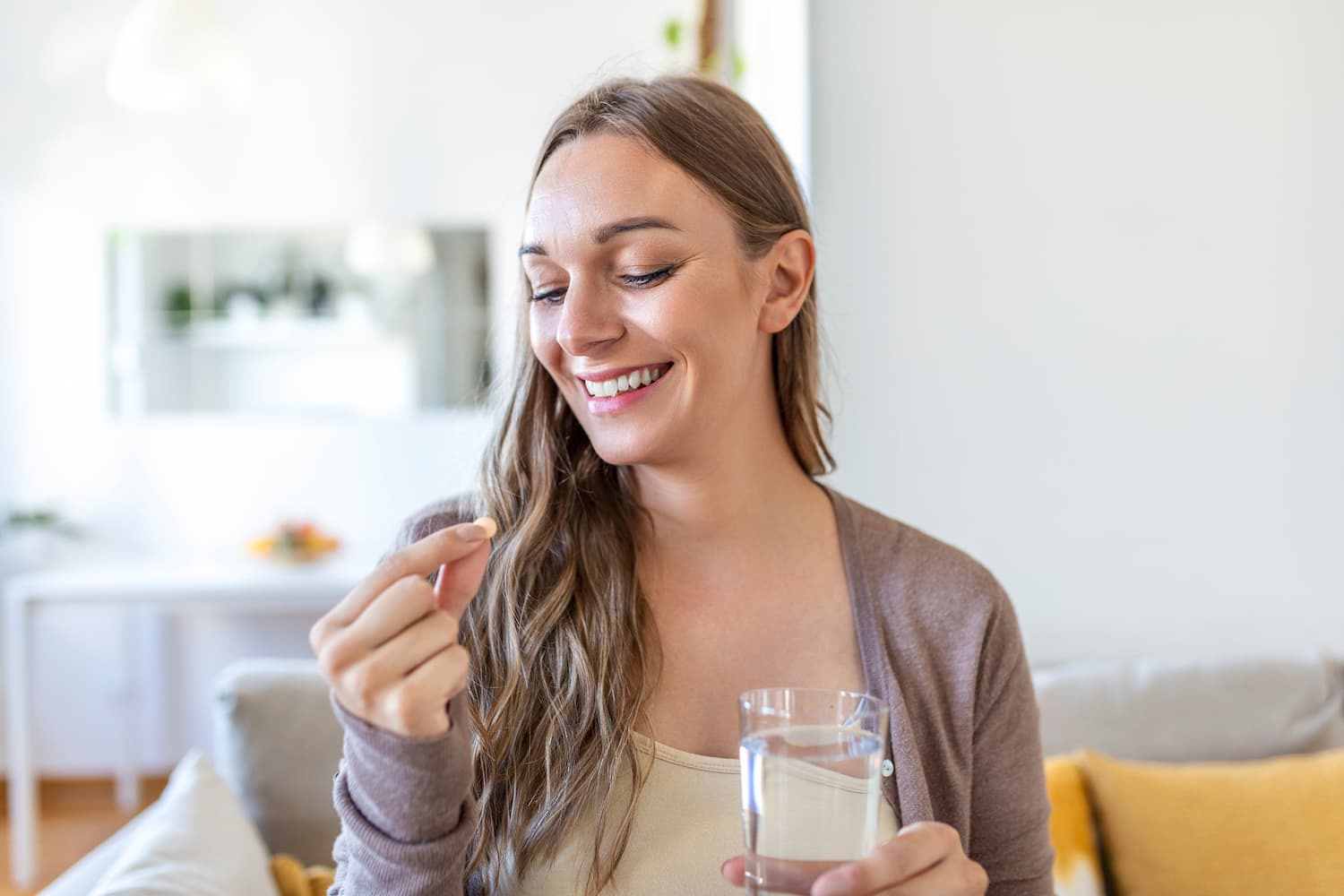
Glutathione is one of the most potent antioxidants for supporting the body's health. Find out how it works and where to get it from.

See why hip joints hurt and how to treat their ailments.
